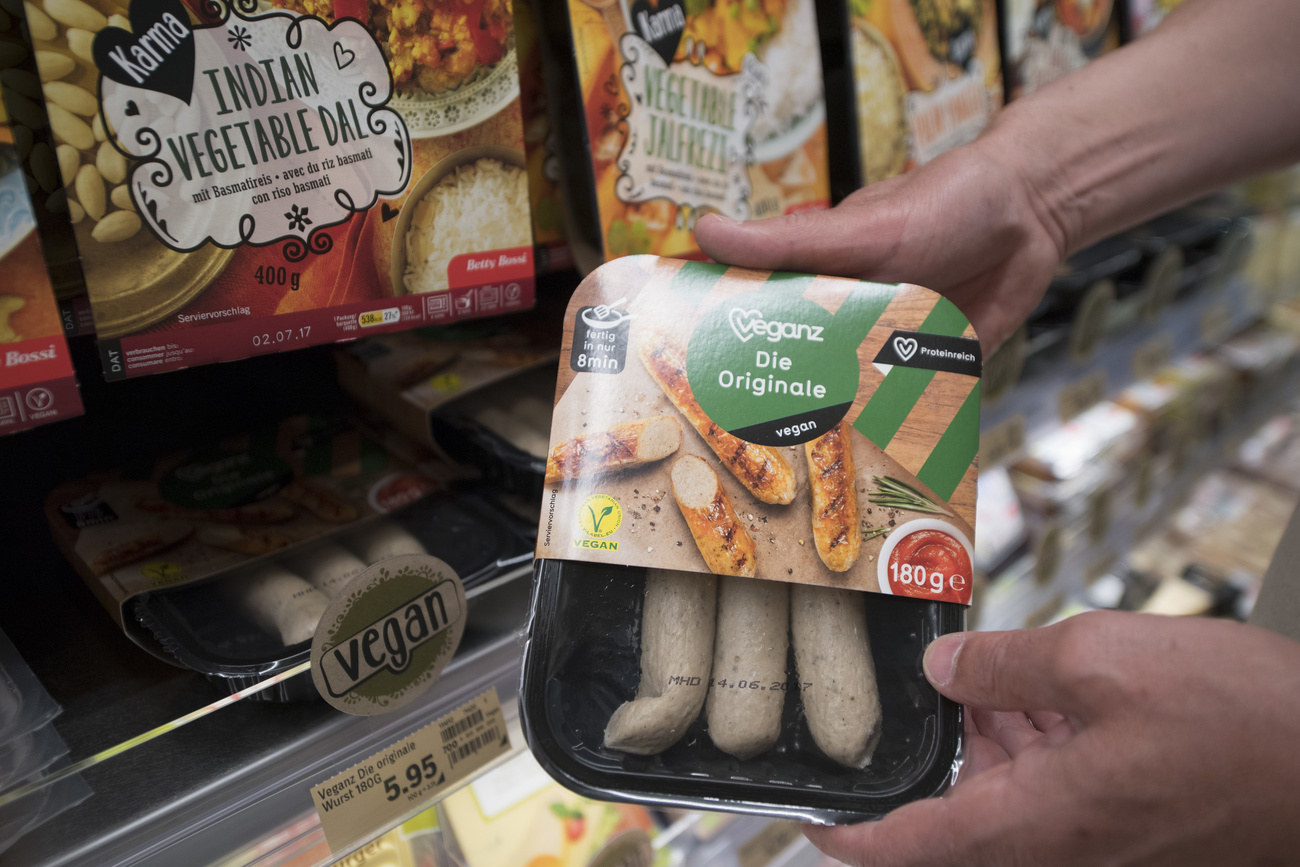
Market share of meat substitutes decreases in Switzerland

Around one in four people in Switzerland buys vegan substitutes for meat, fish, milk or cheese several times a month – with a slight upward trend. However, the market share of meat substitutes is decreasing.
According to the Nielsen Institute, the Swiss retail trade generated sales of CHF134.4 million ($158 million) with dairy substitute products and CHF86.8 million with meat substitute products in 2023. Compared to the previous year, sales of dairy substitute products increased by 6%. According to the figures, fish alternatives grew by 6.7% in the same period.
In contrast, sales of meat substitutes fell by 1.5% after stagnating in the previous year. Among the products, sausage alternatives were the most popular: these displaced meat substitute burgers from the top three best-selling products.
Currently, schnitzel substitutes are the most popular product with sales of CHF16.3 million, followed by vegan alternatives to sliced meat.
+ Switzerland, the home of vegan food
Overall, total sales of meat substitute products have risen sharply since 2018 – sales of meat substitute burgers have almost quadrupled. In the past two years, however, the trend has been downwards. Only vegan sausage and charcuterie alternatives continue to show strong growth, according to the report.
Proportion of consumers of substitute products stable
Meanwhile, the proportion of consumers who are keen to try substitute products remains the same, according to the Plant Based Food Report 2024 study published by retailer Coop on Tuesday: 28% of respondents stated that they regularly ate substitute products last year. This is one percentage point more than in the previous year.
Some 58% of respondents stated that they consciously avoid animal-based foods several times a month. The proportion of so-called flexitarians has therefore fallen by five percentage points in the past year.
+ ‘The meat industry is our main competitor’
According to the report, this type of diet has only increased in recent years and has now stabilised again. This means that the same number of people now describe themselves as flexitarians as in 2020.
Two-thirds still cited environmental protection as the main reason for not eating animal products. Animal welfare and personal health were cited slightly less frequently.
The study is based on data from Coop and a survey by market researcher Link. With 2,200 participants, it is representative for Switzerland.
This news story has been written and carefully fact-checked by an external editorial team. At SWI swissinfo.ch we select the most relevant news for an international audience and use automatic translation tools such as DeepL to translate it into English. Providing you with automatically translated news gives us the time to write more in-depth articles. You can find them here.
If you want to know more about how we work, have a look here, and if you have feedback on this news story please write to english@swissinfo.ch.

In compliance with the JTI standards
More: SWI swissinfo.ch certified by the Journalism Trust Initiative

























You can find an overview of ongoing debates with our journalists here . Please join us!
If you want to start a conversation about a topic raised in this article or want to report factual errors, email us at english@swissinfo.ch.